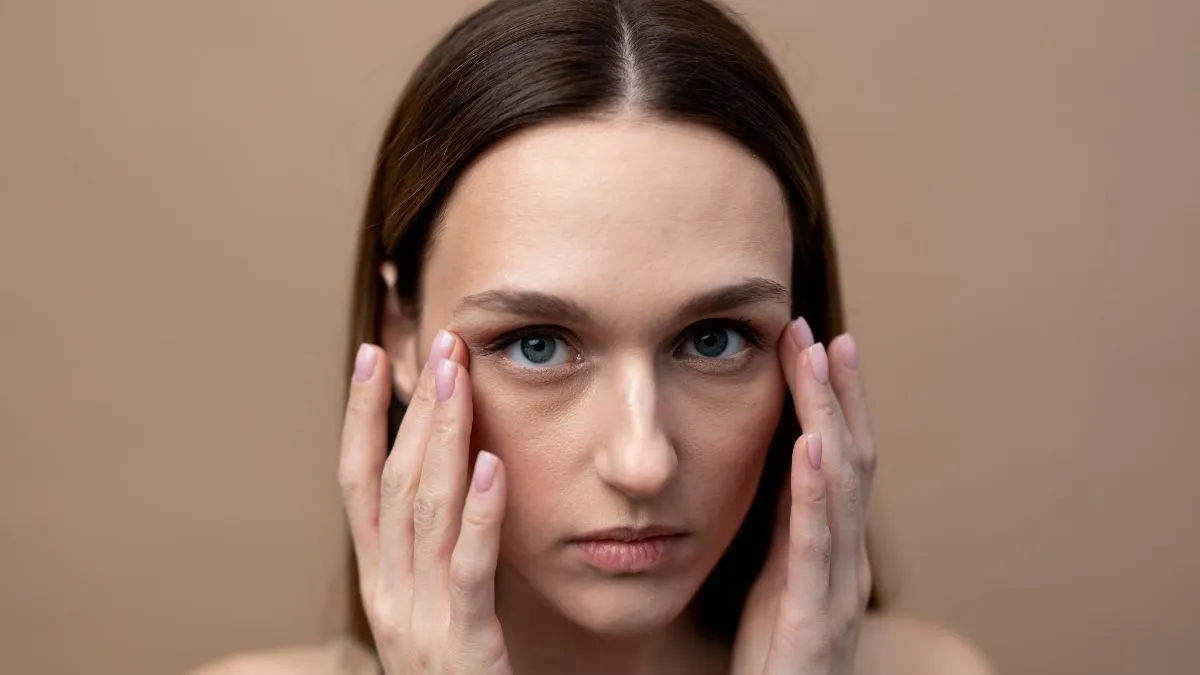
Recently, Shefali Zariwala, died of a sudden cardiac arrest at just 42. Reports suggest she was taking anti-ageing pills and regularly used skin treatments like glutathione, which over time led to a dependency on these drugs. On a day she was fasting, her body may have reacted badly, triggering an allergic shock that proved fatal.
Table of Content:-
While it is well known that steroids, drug overuse, and hormonal treatments such as HRT for menopause or birth control pills can increase the risk of heart attacks, what many don't realise is that these same therapies can also harm the eyes, sometimes even causing blindness. This highlights the importance of approaching such treatments with caution and under proper medical guidance.
Why the Pressure to Look Young Is Riskier Than You Think
According to Dr Jay Goyal, an Eye Surgeon, LASIK specialist, Retina Specialist, and Director at Surya Eye Hospital, Mumbai, “Today, there is immense pressure to look younger, especially on women. Many people feel so driven by this obsession that they turn to online biohacks instead of consulting a doctor.”
Adding to the problem is an unregulated supplement industry that aggressively markets safe ways to prevent wrinkles, alongside a beauty-obsessed society that keeps raising the bar for what is considered acceptable. This has led to widespread use of medications or chemical combinations that promise to slow ageing. The danger is that many of these repurposed drugs might be approved by bodies like the CDSCO or US FDA, but only for specific medical conditions, not for anti-ageing. However, some supplement manufacturers that claim to have anti-ageing qualities tamper with their ingredients.
Furthermore, the market for so-called herbal supplements is uncontrolled, and we have no idea what ingredients are used or whether they fall within safe bounds. Additionally, a large number of anti-ageing drugs currently undergoing clinical studies have not produced any noteworthy benefits. The majority of these experiments are conducted on animals, and the outcomes in human trials could be entirely different. It will take years before the anti-ageing chemicals' claimed efficacy materialises. Until then, anything you read on social media is quackery at best.
Also Read: Make Your Skin Look Younger With These Ayurvedic Tips From Expert
The harmful side effects of such treatments keep surfacing from time to time. Last year in April, the US Centres for Disease Control and Prevention (CDC) revealed that 22 women aged 25 to 59 experienced harmful reactions to Botox that were either mismanaged or counterfeit. Failed Botox treatment in these patients has led to botulism, a disease in which the toxin spreads beyond the local location and assaults the central nervous system, causing muscle paralysis, respiratory difficulties, and even death. Due to this, eleven patients were admitted to the hospital and six received antitoxin treatment. These patients complained of severe eye damage symptoms like drooping eyelids, blurred vision, and double vision. Some experienced slurred speech, difficulty swallowing, weariness, and weakness. It was established that all of the ladies were injected by unlicensed or inexperienced individuals in non-healthcare facilities. This demonstrates the need to use these treatments with utmost care and caution.
How Anti-Ageing Drugs Can Damage Your Eyes
Increase in intraocular pressure (IOP)
Taking unregulated steroids can severely impact eye function. Very high doses of vitamin C can disrupt fluid balance in the eye, increasing intraocular pressure. This can be very risky for glaucoma patients.
Impact on retinal blood vessels
Taking glutathione and vitamin C injections can also affect eye blood circulation. This could contribute to temporary disturbances in retinal blood flow, leading to blurry vision.
Also Read: 5 Natural Sources Of Glutathione, The Hyped Supplement For Skin Care
Development of posterior subcapsular cataracts (PSC)
Long-term use of steroids is a known cause of a type of cataract that forms at the back of the eye's lens. This can cause glare, difficulty reading, and reduced vision, especially in bright light.
Dry eyes
Some patients report increased dryness or irritation after such anti-ageing therapies. This is due to subtle changes in tear film composition or ocular surface health.
Eye allergies
In some rare cases, intravenous glutathione or high-dose vitamin C may cause systemic hypersensitivity. This could show up as redness, watering, or swelling of the eyes (allergic conjunctivitis-type symptoms). Steroids reduce the body's local immune response, which can cause dormant viruses in the cornea to reactivate, worsening infections and potentially leading to corneal scars.
Risk in patients with pre-existing retinal disease
For people with diabetic retinopathy or age-related macular degeneration (AMD), any systemic therapy that alters blood flow dynamics or oxidative states might theoretically exacerbate retinal stress.
Delayed healing of the cornea or infections
Steroids can suppress local immunity, increasing the risk of corneal infections (keratitis) and delaying healing after small injuries. Even minor abrasions can worsen quickly.
Don't Ignore the Signs: When to See a Doctor
It's essential to consult a qualified doctor before starting any anti-ageing therapy, especially if you have an existing heart, eye, or other health issues. There also needs to be tighter regulation on the sale of these products online and in local skin clinics, where people often get them without proper guidance. If something goes wrong, many wouldn't even realise they need immediate medical attention. Most importantly, if you've already begun any anti-ageing treatment and notice vision changes, visit an eye clinic and speak to an ophthalmologist right away. Prompt care is the only way to prevent lasting damage to your eyes.
Also watch this video
How we keep this article up to date:
We work with experts and keep a close eye on the latest in health and wellness. Whenever there is a new research or helpful information, we update our articles with accurate and useful advice.
Current Version
Jul 31, 2025 14:31 IST
Published By : Chanchal Sengar